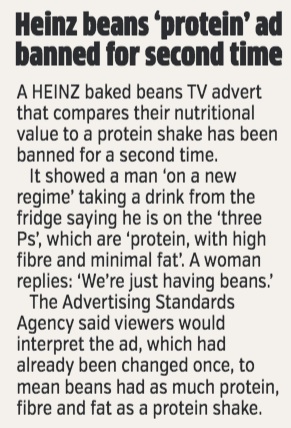I had a whinge, recently, about recruitment consultancies (or individual consultants) posting jobs with no defined salary.
Instead, the salary will be listed as ‘competitive’ or ‘dependent on experience’.
The issue I have with this is that, not stating a figure for ‘salary’ (especially when exact figures have been written for everything else: opening date, closing date, number of hours per week etc) comes across as slightly shady – as in: What’s there to hide? Why not state a figure?
That aside, most people know their market value in any given industry/sector – based on number of years’ experience, the level they’re operating at, the type of job they do etc. If ‘competitive salary’ – after a candidate applies – turns out to be ‘much lower than market value’, then that candidate will simply pull out of the recruitment process, and everyone’s time (the candidate’s, the consultant’s, the client’s) has been wasted.
But, overall, the main thing that’s lost is trust. The candidate won’t trust the consultant/consultancy again, and neither will the client/organisation who was hiring through them.
In fact, for me, trust is lost the moment a consultancy will only list a salary as ‘competitive’ or ‘dependent on experience’. It sounds like they’re hedging their bets: hoping to stack up candidates, sell them into the job, then reveal a low salary at a later date.
And that’s the thing with trust: once it’s gone, it’s very hard to win it back… which is why I don’t understand the point in any organisation doing something which makes it look like they’re duping the consumer.
I saw this earlier:
Look at the initial message – dead centre.
£8 per day?
That’s cheap.
Can I pay for just one day’s advertising?
If I pay for an ad that’s up for longer – maybe two weeks – do I get to pay on
a day-by-day basis, with £8 coming out of my account each morning?
That’d make it affordable.
Ah, hang on – what’s this?
Right at the bottom of the ad, it says this rate of £8 per day is based on a 12-month booking.
12 months = 365 days.
365 days X £8 = £2,920.
So I actually need to spend £3k to ensure my advertising is ‘only £8 per day’… and I bet I’m not allowed to pay for it on a day-by-day basis. I bet 50% is asked for, up front… which would be just shy of £1,500.
So that ‘£8 per day’ message is bollocks.
And now – or if I phoned up and found out the reality – I don’t trust that company.
They come across as shysters.
Even the mighty Heinz got pulled up for this kind of thing – see below:
Using a little common sense, I think most people who watched the TV ad would work out that a tin of beans doesn’t quite contain the same level of protein as a protein shake.
I think the ad was saying; ‘you could faff about with protein shakes, but Heinz baked beans also contain protein and high fibre’.
But…I can also see how you could draw the conclusion – if not giving the ad your full attention – that a tin of beans is as high in protein as a protein shake.
And if this is Heinz’s second warning about the ad, then they’re a bit daft in not removing the direct comparison.
I’m pretty sure that consumer trust in Heinz won’t be dented, as it’s a heritage brand (certainly Heinz baked beans) and it’ll take more than one dodgy ad to affect sales… but still – a bit silly on Heinz’s part.
And that’s the thing: bigger brands can probably take the hit if they’ve been shown to be dishonest.
The emissions scandal left VW with a red face (and a hefty fine), but I don’t see roads devoid of Golfs, Polos, and Beetles.
But, in general, once you’ve lost the trust of your audience – the consumer – you’ll have to work very hard to win it back… if you can win it back at all.
Ask yourself: is this fib / slight bending of the truth / deliberately ambiguous message worth it?
Remember: the consumer isn’t a complete idiot.
Don’t give them a reason not to trust you.

